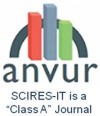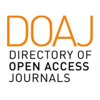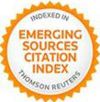Abstract
There is a large stream of literature related to academic copyright. Nonetheless, a comprehensive interdisciplinary analysis of the interplay between economic rights and moral right of paternity appears to be missing. Furthermore, the impact of commodification of research on academic copyright has not been sufficiently investigated. The basic thesis of this article is that academic copyright with reference to academic texts is currently going through a distortion that alters its nature and functions. This distortion is one of the effects of commodification of scientific research. This paper dwells on these aspects with a focus on the role of modern science and the context in which research is performed and highlights the perverse effects of the current evaluation system based on metrics and numbers and the scientific publishing system dominated by an oligopoly of information and analytics providers. Open Science can represent a tool to defend independence of science and academic freedom, though strong actions are required to change the current situation.
Keywords
Full Text:
PDFDOI: http://dx.doi.org/10.2423/i22394303v10Sp25
References
Bently, L., & Biron, L (2014). Discontinuities between legal conceptions of authorship and social practices. What, if anything, is to be done?. In M. van Eechoud (Ed.), The Work of Authorship (pp. 237-239). Amsterdam: Amsterdam University Press.
Berners Lee, T. (2010). Long Live the Web: A Call for Continued Open Standards and Neutrality. Scientific American, 303(6), 80-85.
Biagioli, M. (2012). Recycling Texts or Stealing Time?: Plagiarism, Authorship, and Credit in Science. International Journal of Cultural Property, 19, 453-476. Retrieved from https://ssrn.com/abstract=2427955
Biagioli, M. (2013). Rights or Rewards? Changing Frameworks of Scientific Authorship. In M. Biagioli, P. Galison (Eds), Scientific Authorship. Credit and Intellectual Property in Science (pp 253). London-New York: Routledge Taylor & Francis Group.
Biagioli, M. (2016). Watch out for cheats in citation game. Nature, 535(7611), 201. DOI:10.1038/535201°
David, P. A. (2004). Can “Open Science” be Protected from the Evolving Regime of IPR Protections? Journal of Institutional and Theoretical Economics (JITE) / Zeitschrift für die gesamte Staatswissenschaft, 160(1), 9-34. 21st International Seminar on the New Institutional Economics - The Generation and Distribution of Knowledge.
Di Donato, F. (2009). La scienza e la rete – L’uso pubblico della ragione nell’età del Web. Firenze: Firenze University Press. Retrieved from http://www.fupress.com/archivio/pdf/3867.pdf
Fecher, B., & Friesike, S. (2014). Open Science: One Term, Five Schools of Thought. In S. Bartling, S. Friesike (Eds.), Opening Science. The Evolving Guide on How the Internet is Changing Research, Collaboration and Scholarly Publishing. (pp. 17-47). New York-London: Springer. Retrieved from https://link.springer.com/content/pdf/10.1007%2F978-3-319-00026-8_2.pdf
Fitzpatrick, K. (2011). Planned Obsolescence: Publishing, Technology, and the Future of the Academy. New York: University Press.
Garfield, E. (1955). Citation Indexes for Science: A New Dimension in Documentation through Association of Ideas. Science, 122(3159), 108. DOI: 10.1126/science.122.3159.108
Greco, P., & Silvestrini, V. (2009). La risorsa infinita. Per una società democratica della conoscenza. Roma: Editori Riuniti-University Press.
Guédon, J. C. (2001, 2004). La lunga ombra di Oldenburg: i bibliotecari, i ricercatori, gli editori e il controllo dell’editoria scientifica. Traduzione italiana di M. C. Pievatolo, B. Casalini, F. Di Donato, dall’originale In Oldenburg’s Long Shadow: Librarians, Research Scientists, Publishers, and the Control of Scientific Publishing. Association of Research Libraries, 2001, https://www.arl.org/wp-content/uploads/2001/12/in-oldenburgs-long-shadow.pdf. Bollettino telematico di filosofia politica. Retrieved from http://bfp.sp.unipi.it/rete/oldenburg.htm
Guédon, J. C. (2015). Toward the Internet of the Mind. Rettrieved from https://www.budapestopenaccessinitiative.org/boai15/Untitleddocument.docx/at_download/file
Harnad, S. (1991). Post-Gutenberg Galaxy: The Fourth Revolution in the Means of Production of Knowledge. Retrieved from http://cogprints.org/1580/
Israel, G. (2017). Chi sono i nemici della scienza? Riflessione su un disastro educativo e culturale e documenti di malascienza. Vignate: Lindau
Izzo, U. (2010). Alle origini del copyright e del diritto d'autore. Tecnologia, interessi e cambiamento giuridico. Roma: Carocci.
Johns, A. (2009, 2011). Pirateria – Storia della proprietà intellettuale da Gutenberg a Google. Italian translation by M. Togliani e G. Maugeri from Piracy. The Intellectual Property Wars from Gutenberg to Google, Chicago and London, 2009. Torino: Bollati Boringhieri, 2011.
Kant, I. (1784). Risposta alla domanda: che cos'è l’illuminismo? Traduzione italiana di F. Di Donato, supervisione di M. C. Pievatolo, dall’originale Beantwortung der Frage: Was ist Aufklärung? Berlinische Monatsschrift, 04 (Dezember), 481-494. Bollettino Telematico di Filosofia Politica. Retrieved from http://btfp.sp.unipi.it/dida/kant_7/ar01s04.xhtml#a037
Lametti, D. (2011). On Creativity, Copying and Intellectual Property. In R. Caso (Ed.), Plagio e creatività: un dialogo tra diritto e altri saperi (pp. 171-182). Trento: Università degli Studi di Trento.
Merton, R. K. (1942). Science and Technology in a Democratic Order. Journal of Legal and Politcal Sociology, 1 (942), 115.
Merton, R. K. (1957). Priorities in Scientific Discovery: A Chapter in the Sociology of Science. American Sociological Review, 22(6), 635.
Merton, R. K. (2000). Teoria e struttura sociale. Voll. I-III: Teoria sociologica; Studi sulla struttura sociale e culturale; Sociologia della conoscenza e sociologia della scienza. Bologna: Il Mulino.
Ong, W. J. (1986). Oralità e scrittura. Le tecnologie della parola. Traduzioine italiana di A. Calanchi dall’originale Orality and Literacy: The Technologizing of the Word. London: Methuen. Bologna: Il Mulino.
O’Neil, C. (2017). Armi di distruzione matematica. Come i big data aumentano la disuguaglianza e minacciano la democrazia. Traduzione italiana dall’originale Weapons of Math Destruction: How Big Data Increases Inequality and Threatens Democracy. New York: Penguin Random House LLC. Milano: Bompiani.
Pascuzzi, G. (2017). Il fascino discreto degli indicatori: quale impatto sull’Università? Il Foro italiano, I, 2549-2554.
Pievatolo, M.C. (2012). L’accademia dei morti viventi, parte prima: la revisione paritaria. Bollettino Telematico di Filosofia Politica, 20 gennaio 2012. Retrieved from https://core.ac.uk/download/pdf/32978042.pdf
Pievatolo, M.C. (2018). Integrità della ricerca: i numeri, gli uomini e la scienza. Bollettino telematico di filosofia politica, 11 maggio 2018. Retrieved from Roars https://www.roars.it/online/integrita-della-ricerca-i-numeri-gli-uomini-e-la-scienza/
Polanyi, M. (1962). The Republic of Science: Its Political and Economic Theory. Minerva, I(1), 54-73.
Retrieved from http://faculty.fgcu.edu/bhobbs/Polanyi%201962%20The%20Republic%20of%20Science.pdf
Reichman, J. C., & Okediji, R. (2012). When Copyright Law and Science Collide: Empowering Digitally Integrated Research Methods on a Global Scale. Minnesota Law Review, 96(4), 1362-1480. Minnesota Legal Studies Research Paper, 12-54. Retrieved from https://papers.ssrn.com/sol3/papers.cfm?abstract_id=2149218
Rossi, P. (2007). La nascita della scienza moderna in Europa. Roma-Bari: Laterza.
Russo, L. (2008). La cultura componibile. Dalla frammentazione alla disgregazione del sapere. Napoli: Liguori editore.
Suber, P. (2012). Open Access. Cambridge (Mass.): MIT Press.
Supiot, A. (2015). La gouvernance par les nombres (Cours au Collège de France 2013-2014). Paris: Fayard.
Swartz, A. (2006). Legacy. Retrieved from http://www.aaronsw.com/weblog/legacy
Swartz, A. (2008). Guerrilla Open Access Manifesto. Eremo, Italy. Retrieved from https://archive.org/stream/GuerillaOpenAccessManifesto/G oamjuly2008_djvu.txt
Weber, M. (1919, 1966). La scienza come professione. In Il lavoro intellettuale come professione: Due saggi, traduzione italiana di A. Giolitti dall’originale Politik als Beruf. Berlin: Wissenschaft als Beruf, 1919. Torino: Giulio Einaudi editore, 1966. Retrieved from https://giovineitalia.altervista.org/wp-content/uploads/2018/05/Max-Weber-Scienza-e-Politica-Come-Professione.pdf
Willinsky, J. (2006). The Access Principle. The Case for Open Access to Research and Scholarship. Cambridge (MA): The Mit Press. Retrieved from http://wiki.lib.sun.ac.za/images/0/03/The-access-principle.pdf
Article Metrics
Metrics powered by PLOS ALM
Refbacks
- There are currently no refbacks.
Copyright (c) 2020 Roberto Caso

This work is licensed under a Creative Commons Attribution-NonCommercial-NoDerivatives 4.0 International License.
SCIRES-IT, e-ISSN 2239-4303
Journal founded by Virginia Valzano






